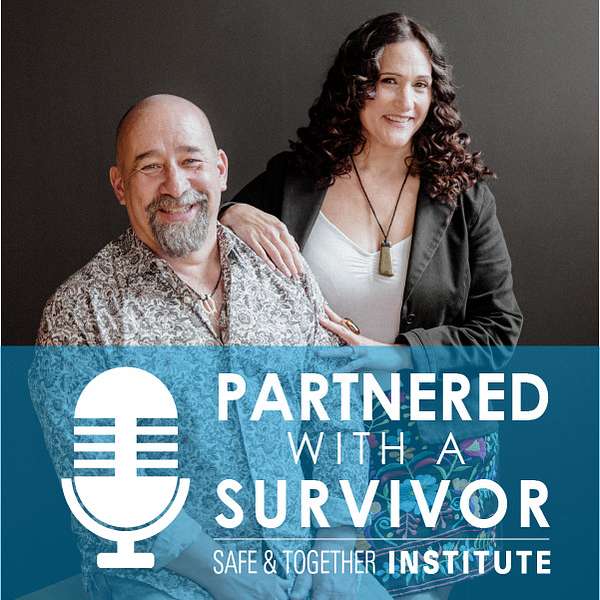
Partnered with a Survivor: David Mandel and Ruth Reymundo Mandel
This podcast is a series of conversations.
What started as a series of intimate conversations between Ruth and David that ranged from personal to professional experiences around violence, relationships, abuse, and system and professional responses which harm, not help, has now become a global conversation about systems and culture change. In many episodes, David and Ruth are joined by a global leader in different areas like child safety, men and masculinity, and, of course, partnering with survivors. Each episode is a deep dive into complex topics like how systems fail domestic abuse survivors and their children, societal views of masculinity and violence, and how intersectionalities such as cultural beliefs, religious beliefs, and unique vulnerabilities impact how we respond to abuse and violence. These far-ranging discussions offer an insider look into how we navigate the world together as professionals, as parents, and as partners. During these podcasts, David and Ruth challenge the notions which keep all of us from moving forward collectively as systems, as cultures, and as families into safety, nurturance, and healing.
We hope you join us.
Have an idea for a podcast? Tell about it here: https://share.hsforms.com/1l329DGB1TH6AFndCFfB7aA3a1w1
Partnered with a Survivor: David Mandel and Ruth Reymundo Mandel
Season 3 Episode 11: Pivoting to the Perpetrator: An Essential Tool for Interrupting Victim-Blaming
Conversations about domestic violence often start from a victim-blaming perspective: “Why doesn’t she leave?” or “Why does she keep choosing him over children?” or “I can’t trust her to understand the impact on children. She has a trauma history.” These victim-blaming statements interfere with partnering with survivors and holding perpetrators accountable as parents. They also prevent accurate assessments and increase worker frustration with survivors.
In this episode, Ruth and David discuss the Safe & Together Model practice of “pivoting to the perpetrator,” which offers specific steps to interrupt victim-blaming and to shift the focus on to where it belongs—the perpetrator’s behaviors. The practice helps professionals:
- Better assess whether interventions with perpetrators are helping or hindering survivor safety
- Recontextualize how survivor “denial” or “non-compliance” is shaped by the perpetrator’s behaviors and the failures of systems’ interventions
- Be successful with their most challenging cases through better collaborations with survivors and more effective interventions with perpetrators
David and Ruth lay out what pivoting looks like, why it is important, and how to do the three-part practice in your work.
Now available! Mapping the Perpetrator’s Pattern: A Practitioner’s Tool for Improving Assessment, Intervention, and Outcomes The web-based Perpetrator Pattern Mapping Tool is a virtual practice tool for improving assessment, intervention, and outcomes through a perpetrator pattern-based approach. The tool allows practitioners to apply the Model’s critical concepts and principles to their current case load in real
Check out David Mandel's new book Stop Blaming Mothers and Ignoring Fathers: How to Transform the Way We Keep Children Safe from Domestic Violence.
Visit the Safe & Together Institute website.
Start taking Safe & Together Institute courses.
Check out Safe & Together Institute upcoming events.